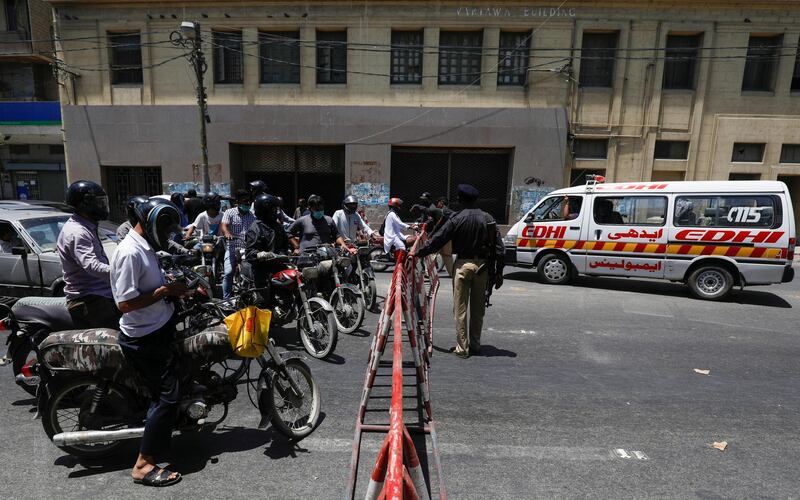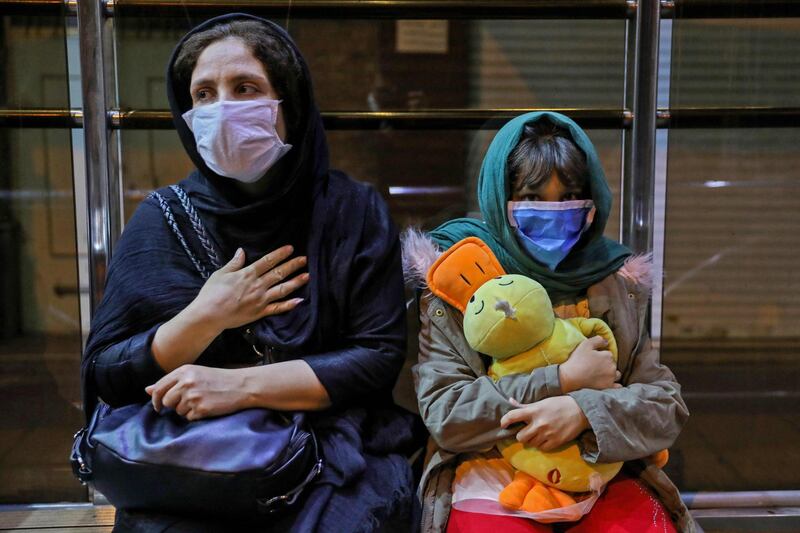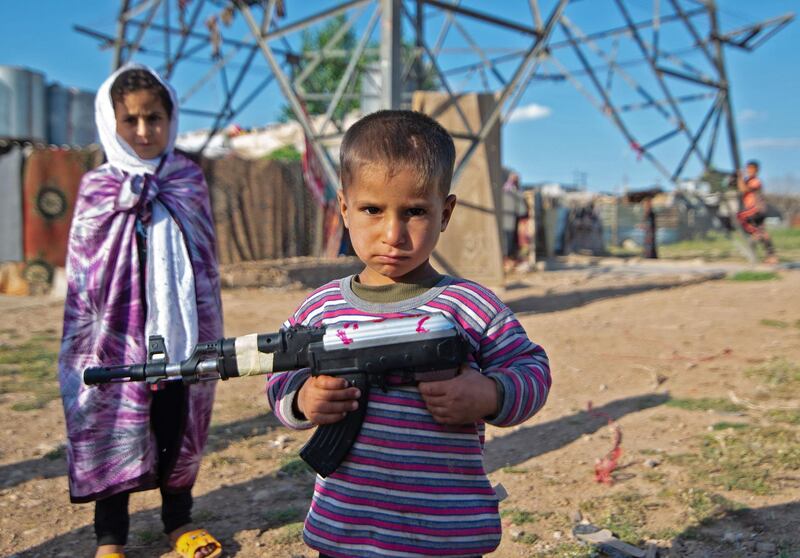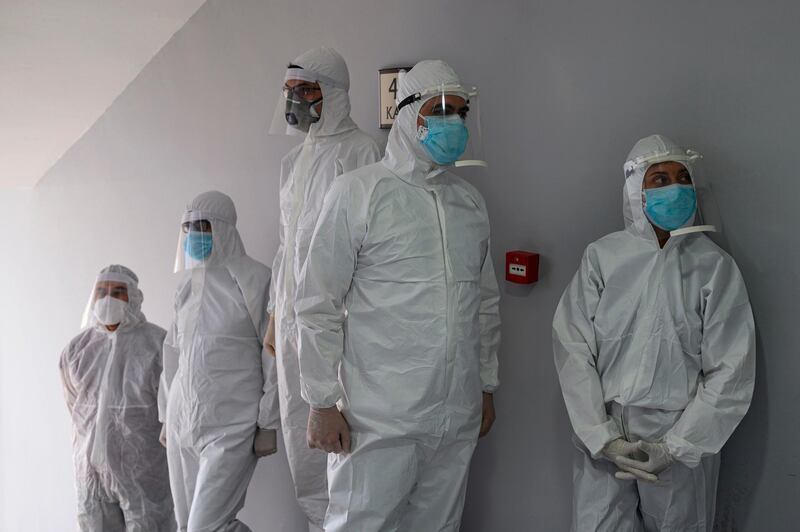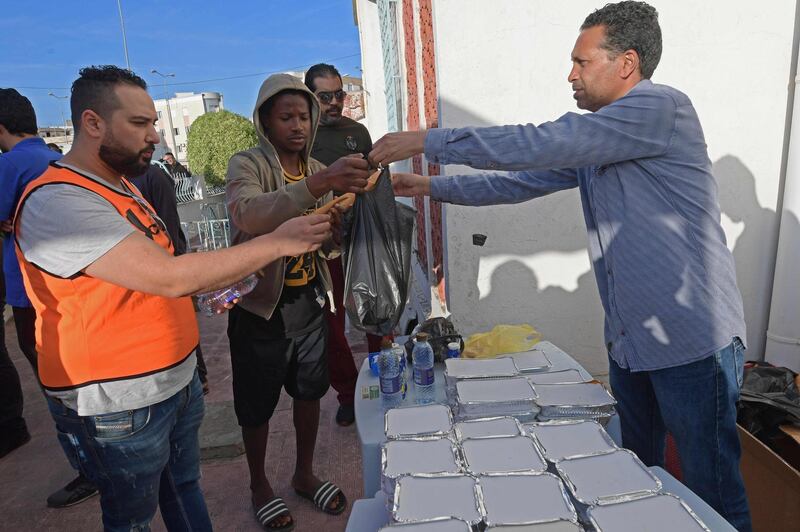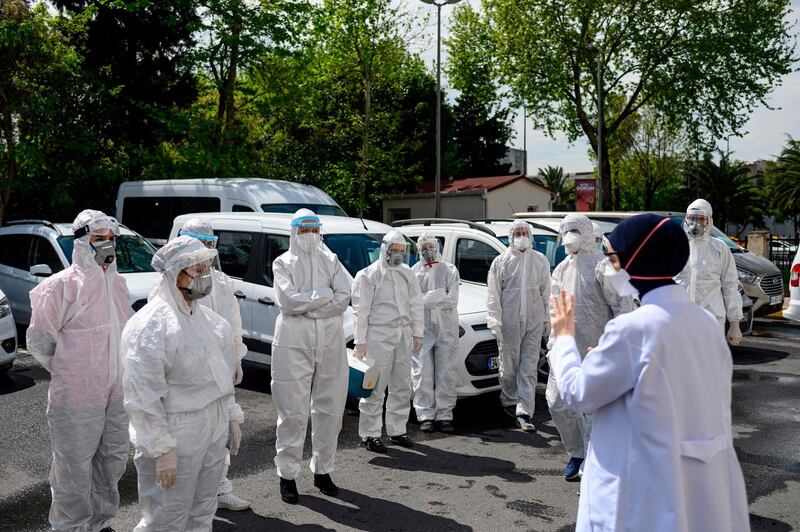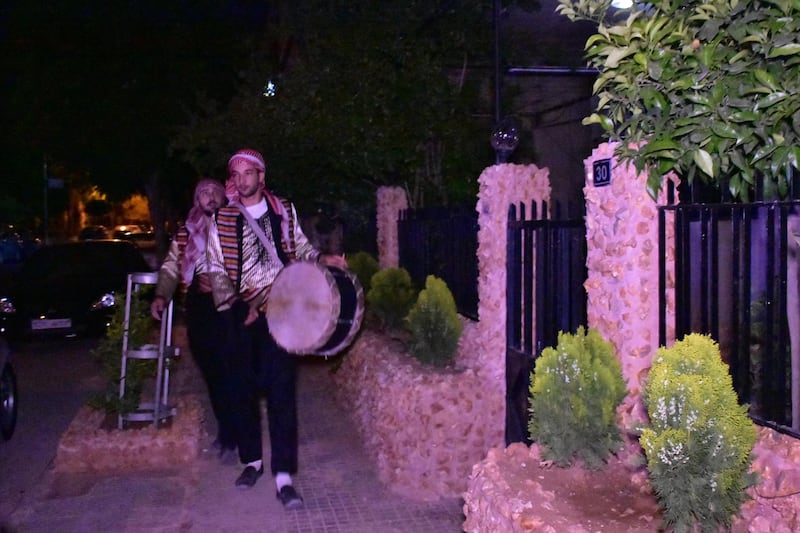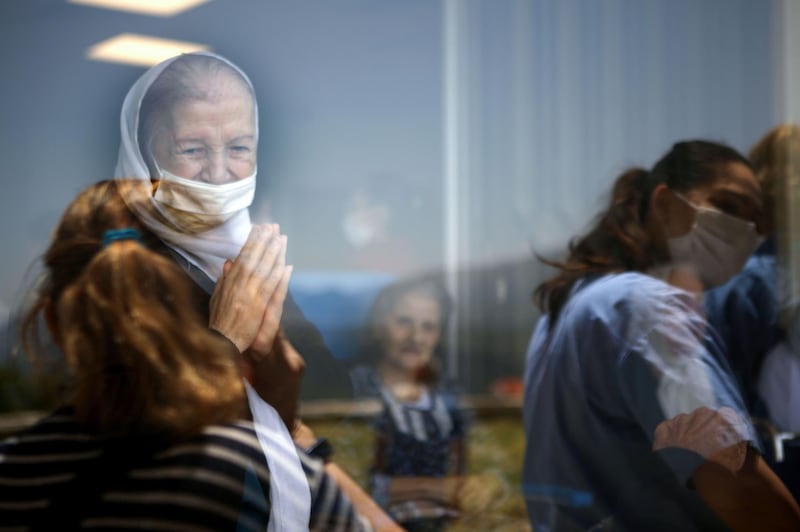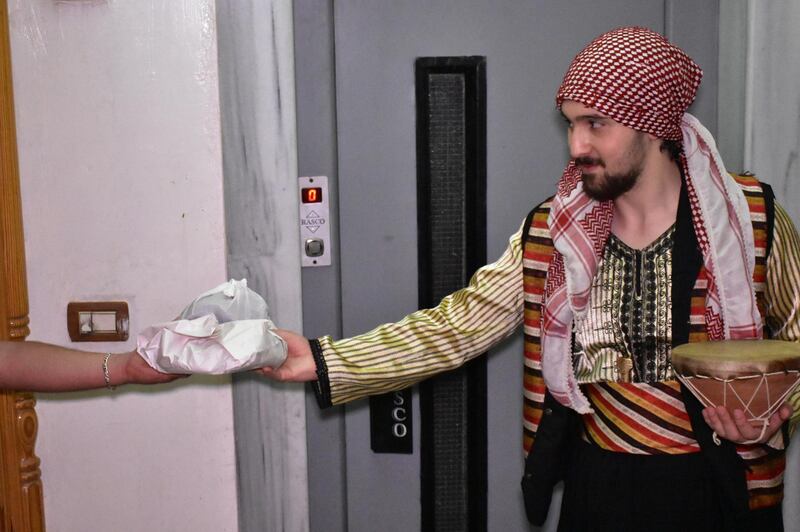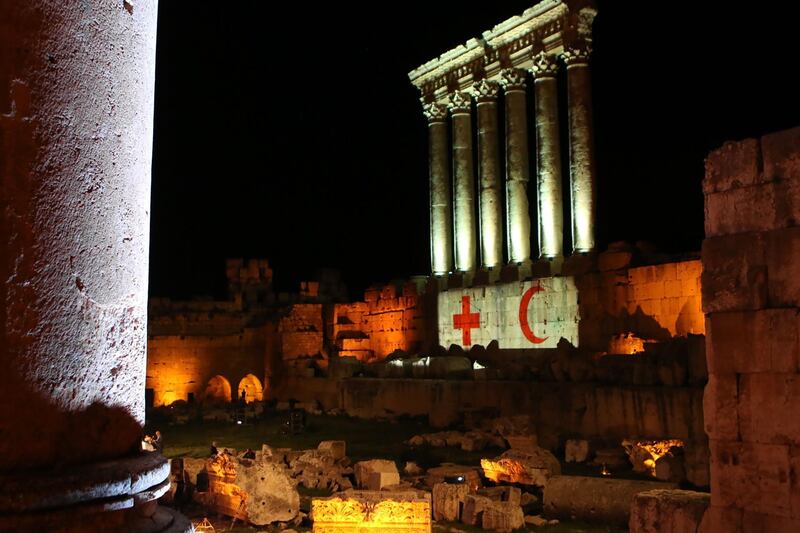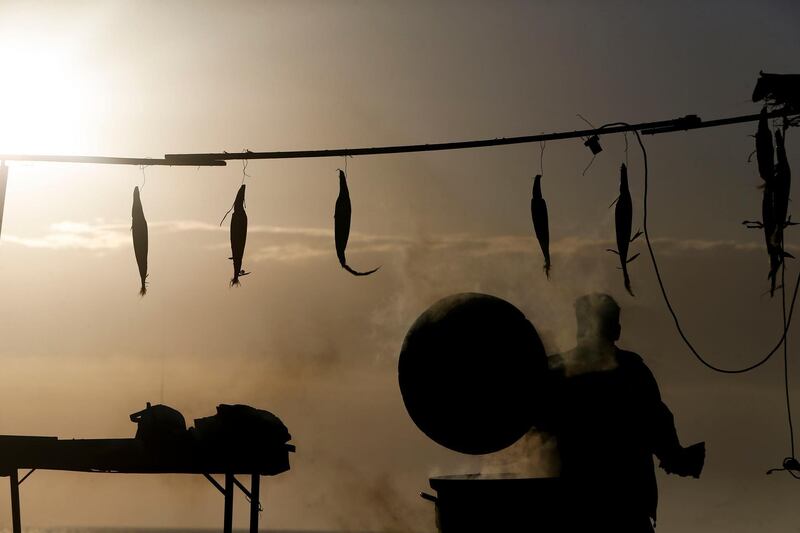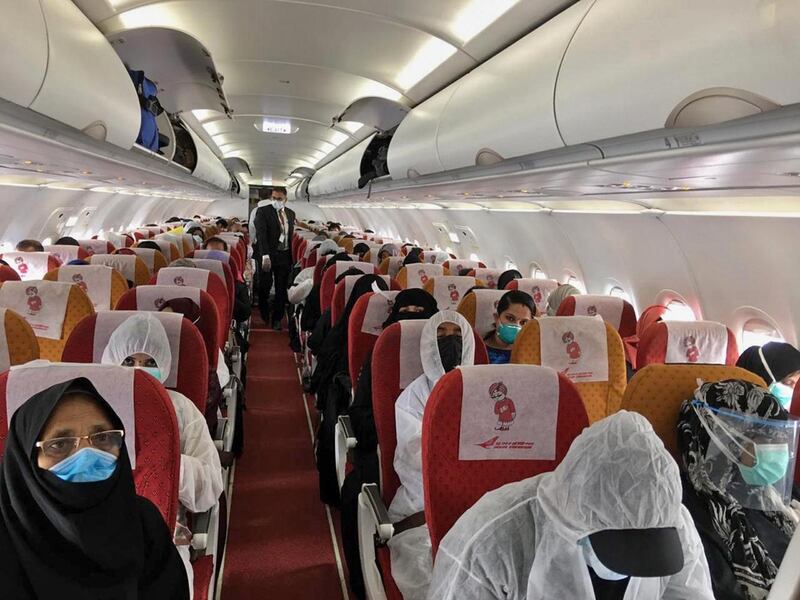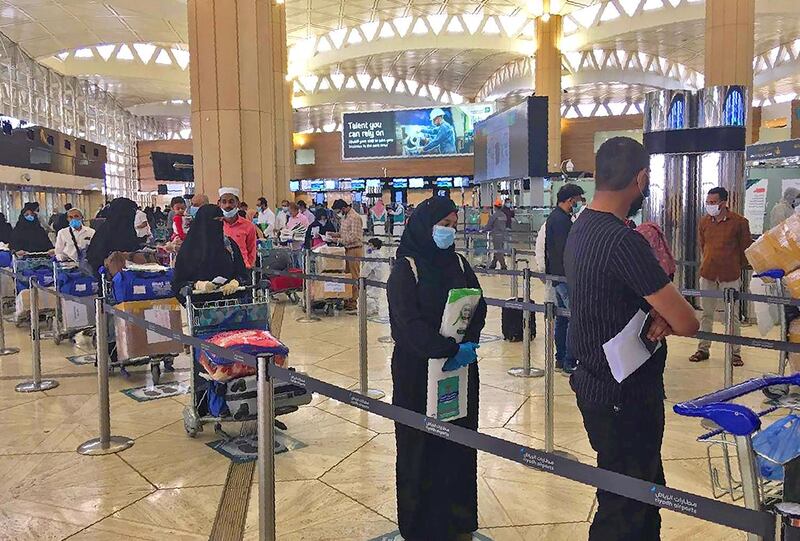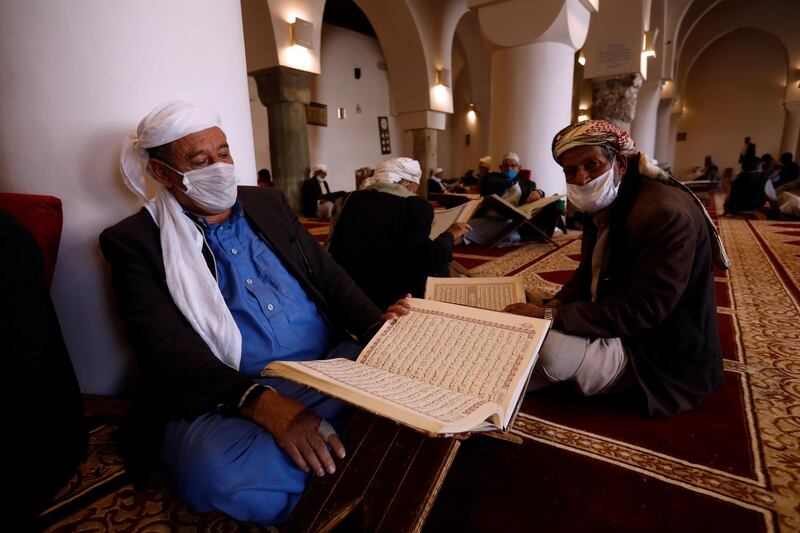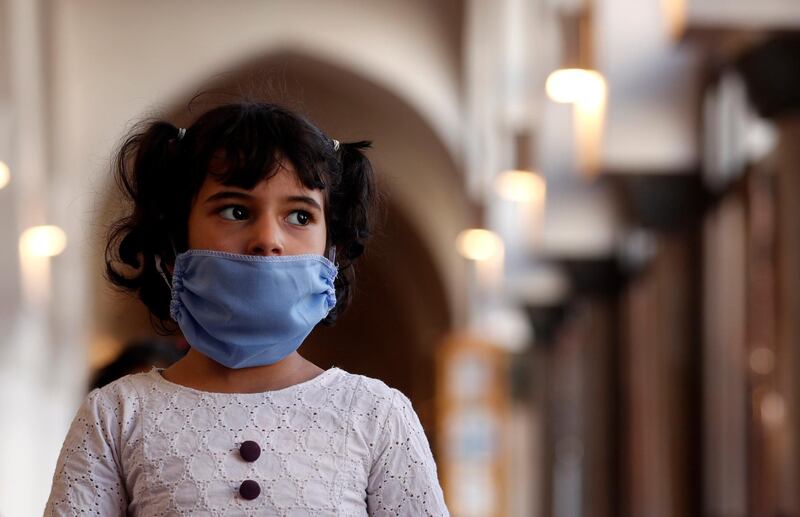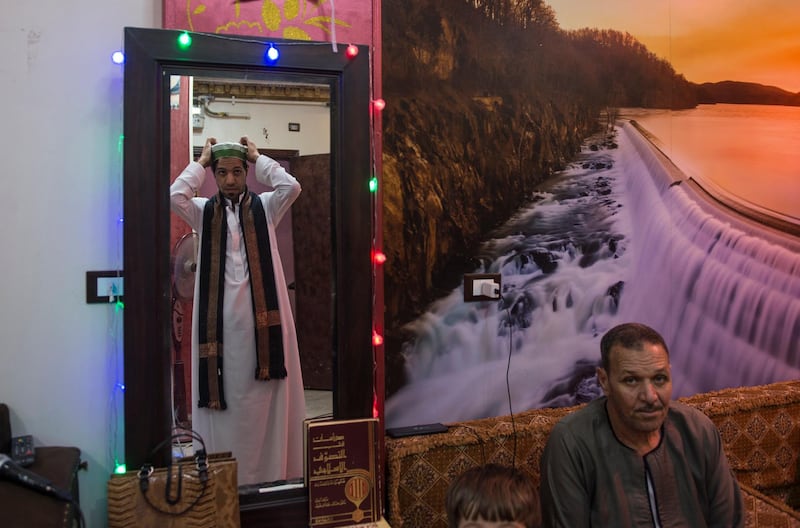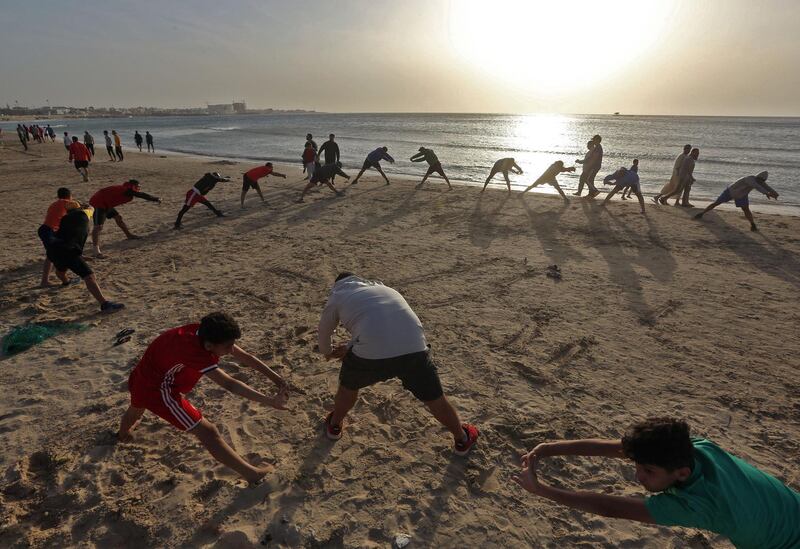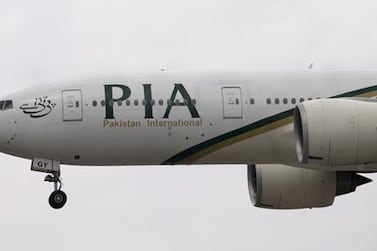Hundreds of Pakistanis who were repatriated from the Middle East have tested positive for Covid-19, officials said.
Pakistan has brought about 20,000 nationals home, among them a large number of unskilled workers who lost their jobs in Gulf nations as lockdowns slowed economic activity.
Of the 2,069 Pakistanis returning from the Middle East to the southern province of Sindh, more than 500 tested positive for the coronavirus, Murad Ali Shah, Sindh's chief minister, told a press conference on Friday.
And in the north-western province of Khyber Pakhtunkhwa, a senior government official told AFP that more than 200 of the 1,600 passengers repatriated to the city of Peshawar had tested positive.
_________________
Coronavirus in the Middle East
_________________
According to the foreign office, about 4.5 million Pakistanis work in the Middle East.
In addition to the 20,000 who have already come back, about 110,000 more overseas Pakistanis have registered a desire to return home.
Pakistan has been chartering flights to bring back stranded nationals, as commercial flights into the country have been halted.
During a briefing Thursday, Moeed Yusuf, the prime minister's special assistant on national security, said that on some flights as many as half the passengers were infected.
"Our ministry of foreign affairs has raised this issue with those countries and we are finding ways so it should not happen again," he said.
Pakistan began easing a nationwide lockdown on Saturday despite reporting another big jump of 1,637 cases, raising the number infections detected so far to 27,474, and 24 new fatalities since Friday that pushed the death toll past 600.
Prime Minister Imran Khan announced his decision to remove restrictions on Thursday, saying the government was unable to financially help the millions of Pakistanis who rely on their daily earnings to survive and feed their families.
Soldiers who manned roadside checkpoints along with police since late March when the lockdown was enforced, were seen leaving for their barracks in the capital, Islamabad, and elsewhere in the country on Saturday.
The government has warned that it will reimpose the lockdown if people do not adhere to social distancing guidelines, which experts say could cause a peak later this month. Although Pakistan has lifted curbs on several economic sectors and allowed business activities to reopen, schools will remain closed until July 15.
